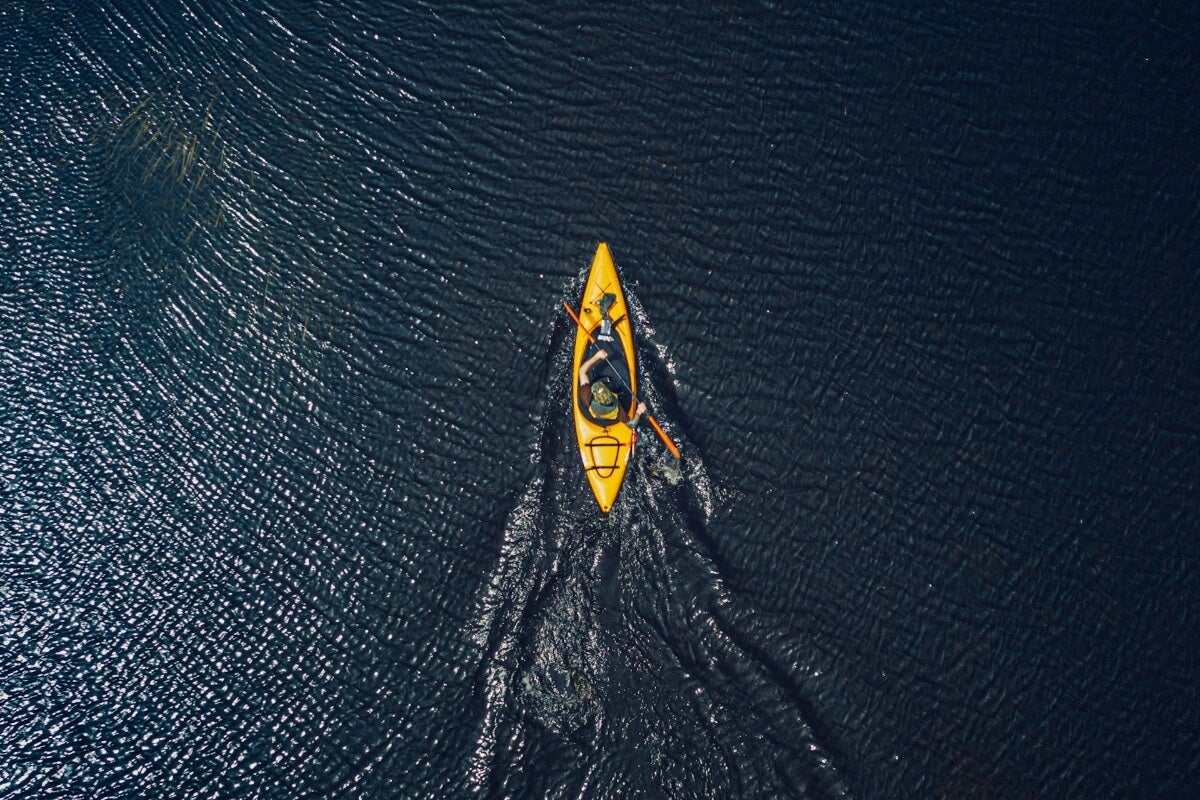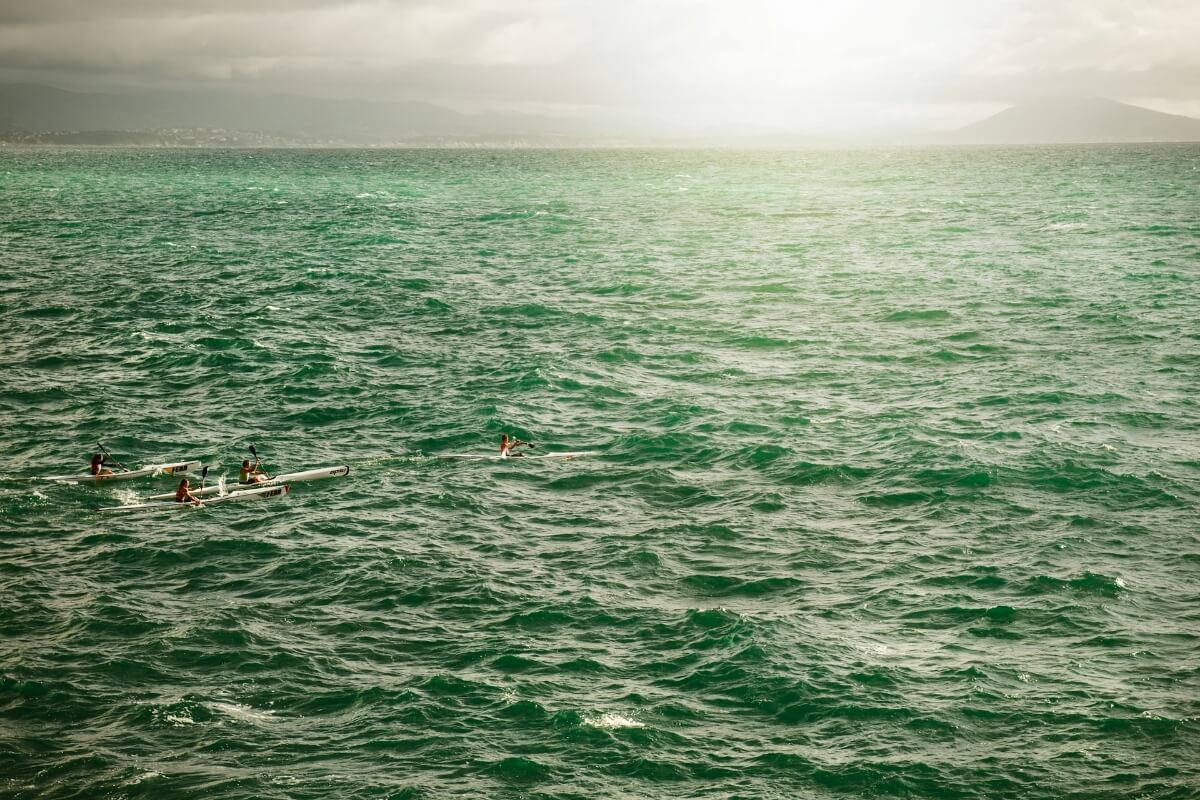Kayak Guide 2024: 9 Types of Kayaks to Try as the Weather Heats Up
Martin Banks 03.18.24

As the weather warms up, getting out on the water gains appeal. Many hunters supplement their winter quarry with summer fishing expeditions. The right kayak can help you land the big bass, and other sunny seasonal fun awaits with the right craft. Which boat is right for you? A quality kayak can cost as much as $1,000 or more, so it pays to do your homework before investing. What should you consider? Here are nine types of kayaks to try as the weather heats up.
Fishing Coverage on AllOutdoor
- Preparing for a Deep-Sea Fishing Charter: 5 Important Pointers
- Feeding Tarpon at Robbie’s of Islamorada – Village in Florida
- AllOutdoor Review – St. Croix Trout Series Spinning Rod 7ft Light
- Northland Tackle’s Elite Series Marabou Jig – Ultra-Soft, Fluffy Feathers
- Cook your Catch – Delicious, Smoked Bluefish Dip
1. Sit-on-Top Kayaks
Many people prefer sit-on-top kayaks for one primary reason – safety. It’s far easier to extricate yourself if you capsize. Plus, many folks find it easier to climb aboard than maneuver themselves into a traditional sit-inside opening. While sit-on-top kayaks are often more stable, they aren’t as aerodynamic. What these models gain in safety, they lose in speed. However, design means a lot. For example, the Hobie Mirage Passport R series features automatically retractable kick-up fins that help you clear obstacles but maintain the pace on straight runs.
2. Pedal Kayaks
Those with a need for speed might consider a pedal kayak. Your legs typically have more endurance than your upper body, and you might find it takes less energy to move your feet than row with your arms. Additionally, you stay drier and keep your hands free for other activities, like fishing. The only drawback of this model is a slightly heavier hull that can make getting your boat from your car to the lake more of a battle. Additionally, they’re better for deeper waters, as shallow depths require frequent drive adjustments.
3. Fishing Kayaks
What sets most fishing kayaks apart are the accessories. They come equipped with various add-ons along the rail to assist anglers haul in the big catch. For example, the Pelican International iA.T.A.K. 110 Angler Kayak features a polymer keel line, an aluminum accessory tray for tackle and a threaded GoPro mount to capture every minute of the action.
4. Sea Kayaks
If you live near the shore, a sea kayak may be your ticket to summer fun. They have sleeker, longer hulls meant for cutting the waves instead of maneuvering around obstacles. They’re fast and can handle rough waters and are also good options for those in the great lakes region — Lake Superior is truly an inland sea, after all.

5. Inflatable Kayaks
Inflatable kayaks often feature wider bases than typical models, lending them greater stability. However, their biggest advantage is weight. They’re much lighter and easier to transport than solid kayaks made from plastic, aluminum or carbon fiber. Additionally, many manufacturers include added features such as seats or coolers, increasing your comfort on your outing.
6. Tandem Kayaks
If you typically head out with a partner, consider a tandem kayak. You’ll share in the paddling and steering duties, easing the overall work burden. Plus, a day on the lake is the perfect way to inspire conversation – they’re great for date night. Taking your sweetheart for a ride to catch the eclipse is a surefire way to create an impression.
7. Hybrid Kayaks
Hybrid kayaks combine the fun of more than one style. For example, many inflatable kayaks are also fishing and sit-on-top models. Other versions test your athleticism. Some hybrid sit-on-top kayaks double as standup paddleboards, giving you a new perspective while working your core balance.
8. Surfskis
If you’re a competitive racer, you might find surfskis are your ideal kayak. These vessels are slightly longer and more streamlined than traditional kayaks and can perform on the ocean or open expanses like your neighborhood lake with equal ease. You’ll use your arms and legs as a series of pedals helps you steer. You’ll find these models featured in long-distance races.
9. Junior/Kids Kayaks
Children 5-6 years old are often old enough to begin kayaking if they are strong, coordinated and can take instruction. Before taking your child on the water, ensure they can swim well – invest in lessons.
Then, head for calm waters and a special kayak designed for the younger set. Many kids’ kayaks are less expensive than adult versions, although they’re still a considerable investment. Consider checking with local rental shops, as some of them sell off old models at season’s end for reasonable prices. The investment pays for itself in hours of summer enjoyment for your family.
Types of Kayak to Try as the Weather Warms Up
Warming temperatures mean the water begins singing its siren song. The right kayak can enhance your angling adventures and provide oodles of recreational fun. Use the above list to find the ideal kayak for you. A kayak is an investment, but it pays you back in endless enjoyment.